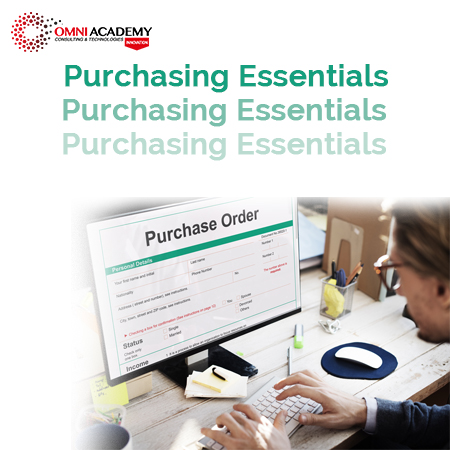Oracle Database PL/SQL Developer Certified Professional (1Z0-149)
Oracle Database PL/SQL Developer Certified Professional Course 1Z0-149 training, Oracle certified expert instructors will help you explore the advanced features of PL/SQL to design and tune PL/SQL. You’ll learn how it interfaces with the database and other applications in the most efficient manner.
Course Key Topics
Declaring PL/SQL Variables
- Introduction of variables
- Types of variables in PL/SQL
- Declaring PL/SQL Variables
Recognize valid and invalid identifiers
- List the uses of variables, declare and initialize variables, use bind variables
- List and describe various data types using the %TYPE and %ROWTYPE attributes
- Writing Executable Statements
Identify lexical units in a PL/SQL block
- Use built-in SQL functions in PL/SQL and sequences in PL/SQL expressions
- Describe when implicit conversions take place and when explicit conversions have to be dealt with Write nested blocks and qualify variables with labels
- Write readable code with appropriate indentation
- Writing SQL in PL/SQL
Create PL/SQL executable blocks using DML and transaction control statements
- Make use of the INTO clause to hold the values returned by a SQL statement
- Writing Control Structures
Identify the uses and types of control structures (IF, CASE statements and expressions)
- Construct and identify loop statements
- Use EXIT and CONTINUE statements inside loops
- Working with Composite Data Types
Create user-defined PL/SQL records
- Create a record with the %ROWTYPE attribute
Create an INDEX BY table and INDEX BY table of records
Describe the differences among records, collections, and collections of records
Initialize collections and records
Using Explicit Cursors
Distinguish between implicit and explicit cursors and use SQL cursor attributes
- Declare and control explicit cursors, use simple loops and cursor FOR loops to fetch data
- Declare and use cursors with parameters
- Lock rows with the FOR UPDATE clause and reference the current row with the WHERE CURRENT OF clause
- Handling Exceptions
Define PL/SQL exceptions
- Recognize unhandled exceptions
- Handle different types of exceptions (internally defined exceptions, predefined exceptions and user-defined exceptions)
- Propagate exceptions
- Using PL/SQL Subprograms
Differentiate between anonymous blocks and subprograms
- Create a simple procedure and invoke it from an anonymous block
- Identify benefits of subprograms
- Creating Procedures and Using Parameters
Create a procedure with parameterrs
- Use named notation
- Work with procedures (create, invoke and remove procedures)
- Handle exceptions in procedures and display a procedure’s information
- Creating Functions
Differentiate between a procedure and a function
- Describe the uses of functions
- Work with functions (create, invoke and remove functions)
- Creating Packages
Identify the benefits and the components of packages
- Work with packages (create package specification and body, invoke package subprograms, remove a package and display package information)
- Overload package subprograms and use forward declarations
- Working with Packages
Use package types and variables
- Use packaged constants and functions in SQL
- Use ACCESSIBLE BY to restrict access to package subprograms
- Using Dynamic SQL
Describe the execution flow of SQL statements
- Use Native Dynamic SQL (NDS)
- Bind PL/SQL types in SQL statements
- Design Considerations for PL/SQL Code
Create standard constants and exceptions
- Write and call local subprograms
- Control the run-time privileges of a subprogram
- Perform autonomous transactions
- Use NOCOPY hint, PARALLEL ENABLE hint and DETERMINISTIC clause
- Use bulk binding and the RETURNING clause with DML
- Creating Compound, DDL, and Event Database Triggers
Create triggers on DDL statements
- Create triggers on system events
- Describe different types of triggers and their uses
- Using the PL/SQL Compiler
Describe the PL/SQL compiler and features
- Use the PL/SQL compiler initialization parameters
- Use the PL/SQL compile time warnings
- Managing PL/SQL Code
Describe and use conditional compilation
- Code-based access control: granting roles to program units
- Whitelist code access with the ACCESSIBLE BY clause
- Mark code as deprecated
- Managing Dependencies
Track and manage procedural dependencies
Find Oracle ERP Job (click on URL)
- Oracle ERP Jobs in UK or US
- Oracle ERP Jobs in Saudia or UAE
- Oracle Fusion Cloud Jobs in Dubai
- Oracle Fusion Cloud Jobs in Saudi Arabia
Oracle Fusion Cloud Job Interview Preparation
- Oracle Fusion Cloud Technical Interview Questions
- Oracle Fusion Cloud Techno Functional Interview Questions
- Oracle Fusion Financials Cloud Interview Questions
- Oracle DBA Interview Questions and Answers
International Student Fee: 300$
Job Interview Preparation (Soft Skills Questions & Answers)
- Tough Open-Ended Job Interview Questions
- What to Wear for Best Job Interview Attire
- Job Interview Question- What are You Passionate About?
- How to Prepare for a Job Promotion Interview
🎥 Your FREE eLEARNING Courses (Click Here)
Internships, Freelance and Full-Time Work opportunities
Flexible Class Options
- Week End Classes For Professionals SAT | SUN
- Corporate Group Trainings Available
- Online Classes – Live Virtual Class (L.V.C), Online Training
Related Courses
Oracle Database SQL Course -1Z0-071
Oracle 12c DBA All-in-One Course
Oracle APEX – Application Express
Diploma SAP ERP Complete All-in-One Course
Oracle ERP R12 Supplychain Management
R12i Oracle E Business Suite Fundamentals
Oracle E-Business Suite R12 Applications DBA
Oracle Fusion Financials Cloud – 1Z0-408
[/vc_column_text]







